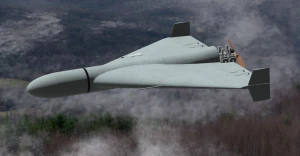
Peace Summit in Switzerland: key outcomes and their meaning for Ukraine
On June 15 and 16, over 100 countries and international organizations gathered in Switzerland, most of which eventually supported a joint communiqué
Content
1. What was included in the joint communiqué of the Peace Summit
2. How many countries supported the communiqué and who did not join
3. Key decisions for Ukraine announced during the Peace Summit
4. Peace Summit 2.0: when to expect it and in what format
At the end of the Peace Summit, its participants managed to work out a joint communiqué, make a number of individual decisions that are important for the future of Ukraine, and leaders of different countries made their statements.
Espreso reports on what was discussed during the Peace Summit in Switzerland, the main points of the joint communiqué, who did not support it, and what the results are for Ukraine.
What was included in the joint communiqué of the Peace Summit
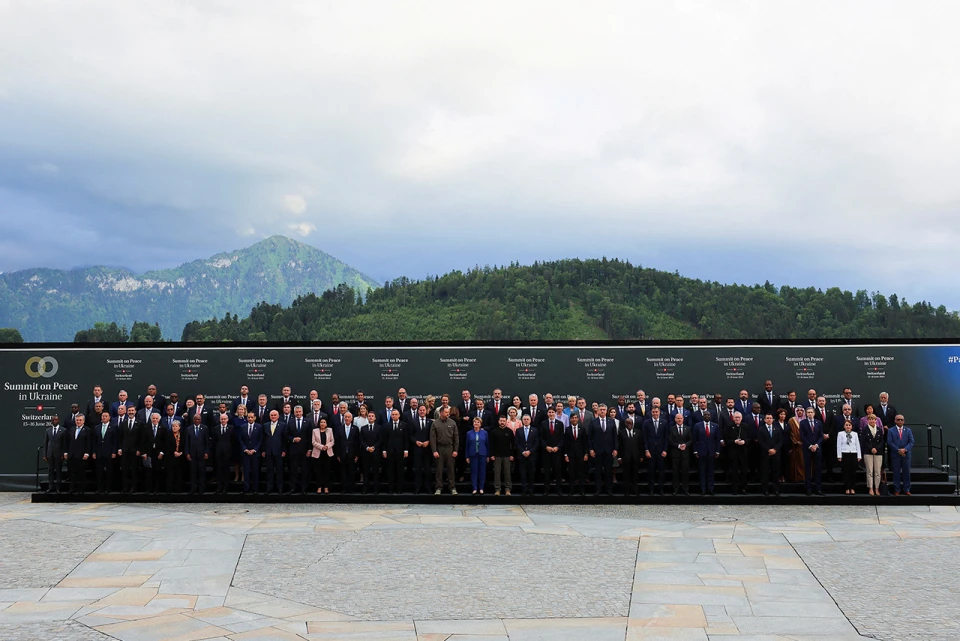
Photo: Reuters
The full text of the joint communiqué has already been published on the website of the Presidential Office of Ukraine, and it focuses on three issues on which the majority of the Peace Summit participants reached a consensus.
The first point of the communiqué focuses on nuclear safety, i.e. the safety of nuclear energy and nuclear facilities on the territory of Ukraine: “any use of nuclear energy and nuclear installations must be safe, secured, safe-guarded and environmentally sound. Ukrainian nuclear power plants and installations, including Zaporizhzhia Nuclear Power Plant, must operate safely and securely under full sovereign control of Ukraine and in line with IAEA principles and under its supervision.”
Meanwhile, the communiqué defines the use of nuclear weapons in the context of the war in Ukraine as unacceptable.
The next point relates to food security, which in no case can be used as a weapon, and Ukrainian agricultural products must be safely and freely supplied to interested third countries. Accordingly, free and safe shipping, as well as access to ports on the Black and Azov Seas, is extremely important.
"Attacks on merchant ships in ports and along the entire route, as well as against civilian ports and civilian port infrastructure, are unacceptable.," the document emphasizes.
And the third point in the communiqué, but one of the most important for Ukrainians, was the declaration that all prisoners of war should be released through a full exchange. Also, all deported and illegally displaced Ukrainian children and all illegally detained civilians should be returned to Ukraine.
The countries and organizations that supported the joint communiqué are convinced that in order to achieve peace, dialogue and engagement of all parties is necessary. This is what they plan to work on in the future.
"The United Nations Charter, including the principles of respect for the territorial integrity and sovereignty of all states, can and will serve as a basis in achieving a comprehensive, just and lasting peace in Ukraine," the main document of the global international diplomatic event concludes.
How many countries supported the communiqué and who did not join
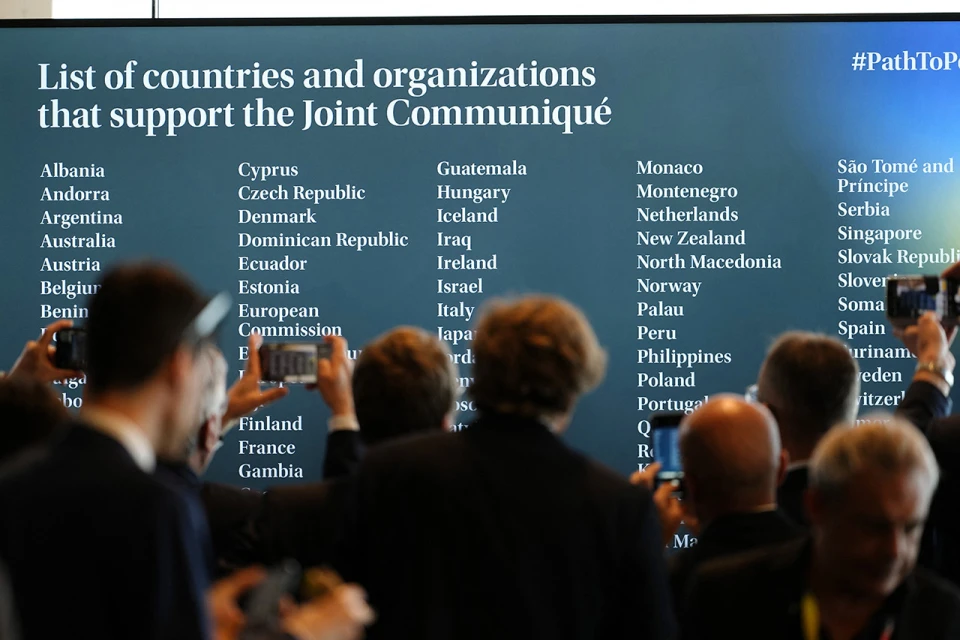
Photo: Getty Images
Following the second plenary session of the Global Peace Summit in Switzerland on June 16, a joint communiqué was signed by 80 participating countries and 4 international organizations, namely the Council of Europe, the European Commission, the European Council and the European Parliament.
Among the countries that signed the communiqué are the United States, the United Kingdom, Japan, South Korea, all EU countries, Argentina, Chile, Peru, Uruguay, Guatemala, Georgia, Israel, Qatar, Kosovo, Jordan, and a number of African countries. Also, despite previous opposing forecasts and estimates, Turkey, Hungary, Serbia, and Slovakia are among the signatories.
Meanwhile, a number of countries did not support the communiqué. These include Saudi Arabia, Thailand, India, Mexico, South Africa, the United Arab Emirates, and several other countries. In addition, Brazil and the Vatican, which attended the Peace Summit as observers, were not included in the list of supporters.
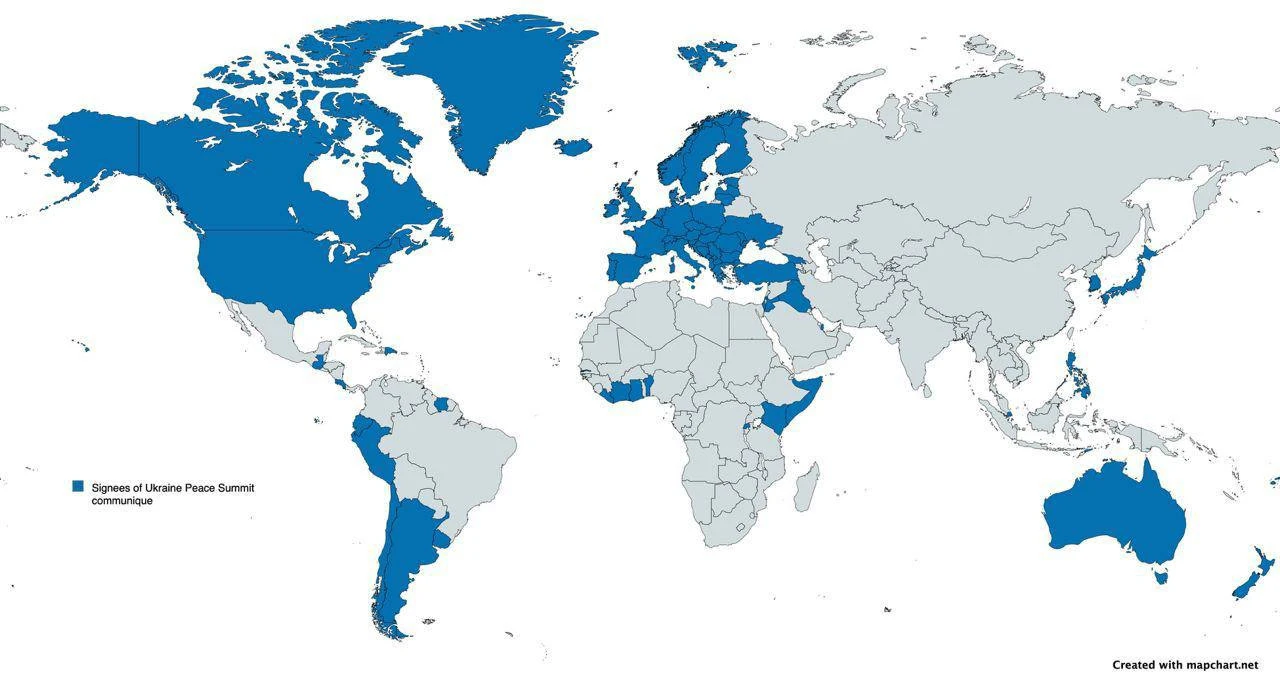
Countries that joined the Summit communiqué on the world map
However, it is worth recalling the words of Austrian Chancellor Karl Nehammer, who said on the sidelines of the event a little earlier, that not all participants would likely sign the final declaration. However, the communiqué is a matter of "diplomatic subtleties, such as individual words," and, according to him, this does not affect the overall basic position.
"So I'm not too worried if not everyone signs now," said Chancellor Nehammer.
In addition, according to Foreign Minister Dmytro Kuleba, the declaration will be open to other countries to join even after the summit. Therefore, the number of those who consider these three points of the declaration acceptable to them is likely to grow.
"There are different countries with different opinions. We must respect the opinion of each and every one of them, unless they are occupiers. Therefore, the potential number will increase. This is understandable. There is also a number of countries that could not be at the highest level and will join the communiqué. In any case, we will see it," Zelenskyy emphasized during the final press conference after the Summit.
Key decisions for Ukraine announced during the Peace Summit
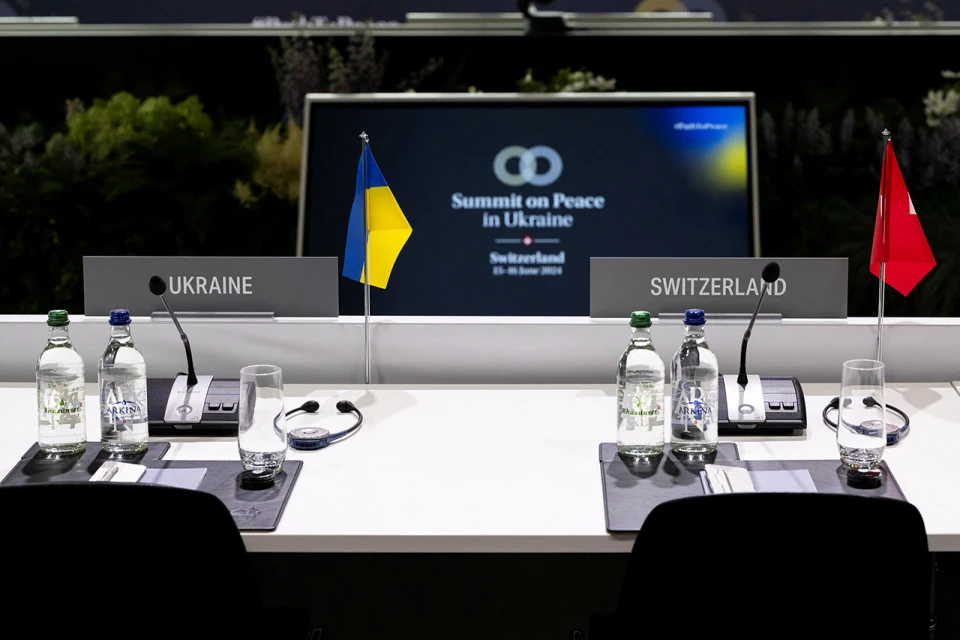
Photo: Reuters
On Saturday, June 15, before the start of the Peace Summit in Switzerland, during a personal meeting with Ukrainian President Volodymyr Zelenskyy, US Vice President Kamala Harris announced that the US would allocate over $1.5 billion to Ukraine for energy, humanitarian needs, and civilian security. In fact, this was the first important news to be announced during the event.
At the same time, as was clear from the beginning of the talks about the Summit and as German Chancellor Olaf Scholz reminded everyone, ending the war is not and cannot be the topic of the first Summit. At the same time, he noted that an immediate ceasefire, without formal negotiations, would simply legitimize Russia's seizure of Ukrainian territories and lead to a new frozen conflict.
Vice President of the United States Kamala Harris assessed the conditions for peace talks with Ukraine announced by Russian leader Vladimir Putin, emphasizing that these are not offers of negotiation, but conditions of surrender.
"By contrast, however, yesterday Putin put forward a proposal. But we must speak truth: He is not calling for negotiations, he is calling for surrender," she said.
Meanwhile, European Commission President Ursula von der Leyen emphasized the importance of reaching a consensus on further steps towards peace in Ukraine, stressing that freezing the conflict would provoke further wars. According to her, Ukraine's allies and partners need to support a "comprehensive, just and lasting peace" that will help restore Ukraine's sovereignty and territorial integrity. After all, the inviolability of all borders and the sovereignty of all states are at stake.
And on the final day of the Summit, June 16, Norwegian Prime Minister Jonas Gahr Støre promised to build an energy network to provide electricity to Kharkiv doctors and to help Ukraine return children illegally taken to Russia. He also invited Ukrainian President Volodymyr Zelenskyy to continue cooperation on the next Peace Summit to pave the way for sustainable peace.
Anwar Gargash, a diplomatic adviser to the UAE president, also announced the country's intention to sign a partnership agreement with Ukraine and deepen trade relations.
Gargash says that looking towards the future, he would like Ukraine and the UAE to conclude a partnership agreement and deepen trade relations. He emphasizes that this is urgently needed at this time.
Finally, Canada announced the allocation of $15 million for the return of Ukrainian children from Russia.
"We've recently seen reports of Ukrainian children being listed on Russian adoption websites. They're being forced to forget their identity as Ukrainians. I think we all know the consequence of removing children from their language, their culture, their families, their identity. It's a form of colonialism that the world cannot abide by," said the Canadian Prime Minister.
Peace Summit 2.0: when to expect it and in what format
Swiss Foreign Minister Ignazio Cassis said that the second Peace Summit could take place before the US presidential election in November. However, there is currently no speculation as to where the next meeting of world leaders might take place.
This is also what President of Ukraine Volodymyr Zelenskyy says when summarizing the second day of the Peace Summit in Switzerland. He emphasizes that it is important that all participants of the summit support the territorial integrity of Ukraine, because without it there will be no peace. And there are already countries that have expressed a desire to host the 2nd Peace Summit and negotiations have already begun with them.At the same time, the Ukrainian president added that the first and second Peace Summits should unite their work on the details of peace in a state of war.
"And we don't have time for long-term work. Moving towards peace means acting quickly. Preparations take months - not years. Therefore, when the peace action plan is ready and elaborated, the way to the 2nd Peace Summit will be opened, and thus to the end of this war for a just and lasting peace," Zelenskyy emphasizes.
At the same time, a number of world leaders have stated that Russia should participate in the next Peace Summit. In particular, Olaf Scholz insists that negotiations with Russia are unavoidable. But on the terms of Ukraine and the international community. While Italian Prime Minister Giorgia Meloni said that if Russia does not agree to the terms adopted by the international community at the first summit, the countries will force it to surrender.
It is worth noting that now, after the diplomatic event, the next step should be to present a peace plan to Russia. After all, "at the next Peace Summit, we must record the end of the war," Volodymyr Zelenskyy is convinced.
The Presidential Administration also does not rule out Russia's participation in the next summit if "the countries that share the joint plan developed by Ukraine and its allies are ready to convey this to the aggressor country and it does not dictate its terms, but listens to the community."
- News








